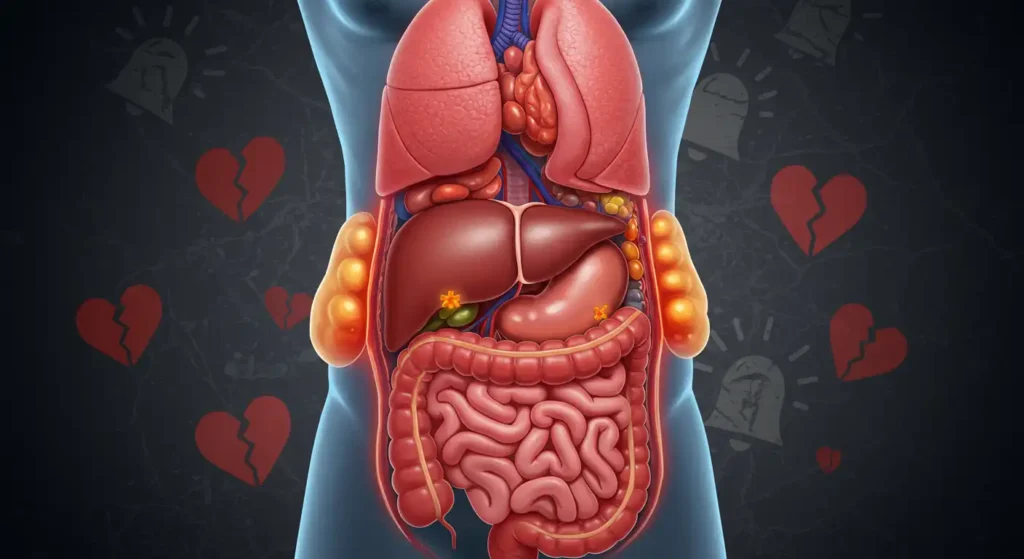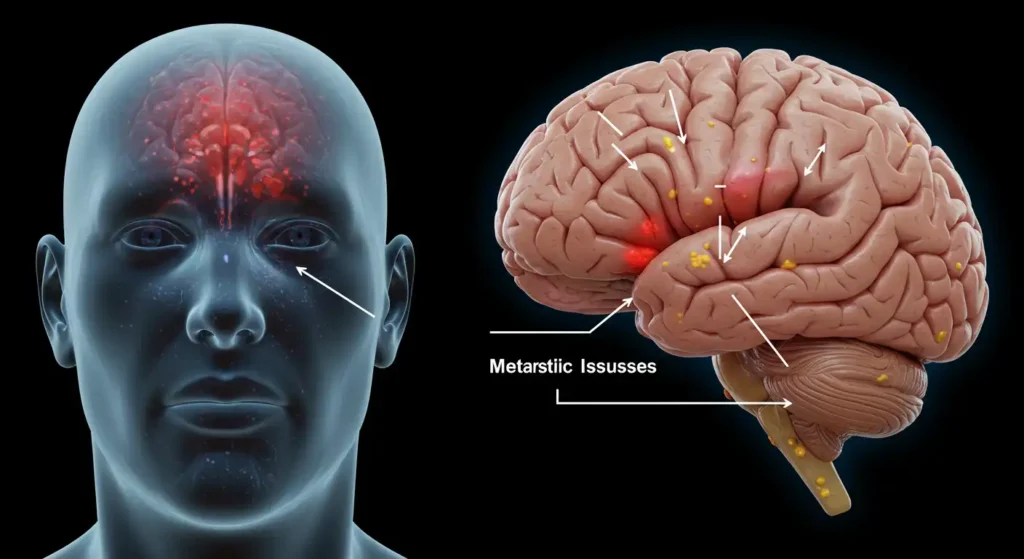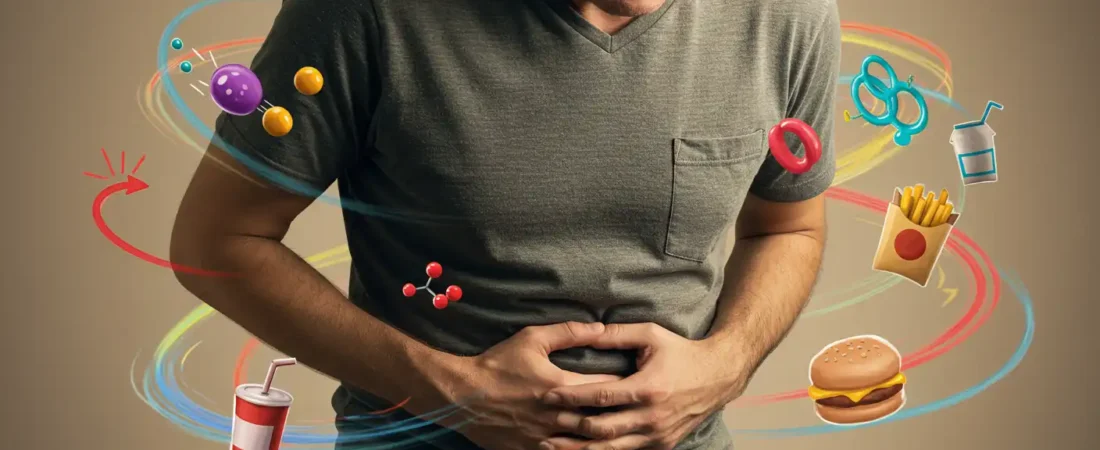Posttraumatic Stress Disorder and Its Surprising Impact on Belly Fat
Posttraumatic stress disorder (PTSD) is often associated with emotional turmoil and psychological distress. However, a growing body of research reveals a shocking physical consequence that many people overlook belly fat accumulation. PTSD and other chronic stress conditions trigger a cascade of hormonal responses, particularly involving cortisol, that directly influence how and where our bodies store fat.
In people with PTSD, the body remains in a state of hyperarousal, constantly interpreting harmless situations as threats. This state of continuous stress keeps cortisol levels elevated, leading to increased fat storage in the abdominal region. What’s particularly alarming is that this kind of fat, known as visceral fat, wraps around your internal organs and poses significant health risks, such as heart disease, type 2 diabetes, and even certain cancers.
This article dives deep into the disturbing connection between PTSD, stress, and abdominal weight gain, offering science-backed insights and practical tips for healing.
How Posttraumatic Stress Disorder Triggers Cortisol Belly: The Biological Mechanism

Chronic stress, especially as seen in individuals with posttraumatic stress disorder, leads to persistently high cortisol levels. Cortisol, often dubbed the “stress hormone,” is crucial for survival but becomes problematic when elevated for prolonged periods. This section will explain how chronic activation of the hypothalamic-pituitary-adrenal (HPA) axis leads to a condition known as cortisol belly, and why it’s so prevalent in individuals with PTSD.
Cortisol’s Role in Fat Storage
When cortisol is chronically elevated, it alters the metabolism. The body begins to break down muscle for energy while storing fat especially visceral fat around the abdominal organs. This type of fat is more dangerous than subcutaneous fat because it is metabolically active and increases inflammation in the body.
The Fight-or-Flight Misfire
Under PTSD, the fight-or-flight response is constantly active, even in non-threatening situations. This leads to chronic adrenal stimulation, flooding the body with cortisol. Cortisol, in turn, increases appetite, cravings for high-fat and sugary foods, and signals fat storage around the belly as a survival mechanism.
According to a study published in the Journal of Obesity, people with PTSD have significantly more visceral fat than those without the disorder (source). This means that trauma and stress are not just psychological they transform the body on a cellular and hormonal level.
The Dangerous Feedback Loop of Posttraumatic Stress Disorder and Weight Gain

Stress-Induced Eating Patterns
Stress, especially chronic stress from PTSD, alters brain chemistry and behavior, leading to emotional eating. Individuals often seek comfort in high-calorie, sugary, and fatty foods, which activate the brain’s reward system. This short-term relief reinforces the habit, making emotional eating a chronic issue.
This behavior is particularly harmful when combined with hormonal imbalances. Elevated cortisol increases ghrelin (the hunger hormone) and decreases leptin (the satiety hormone), resulting in a powerful drive to overeat. Over time, this leads to weight gain, especially in the abdominal area.
Insulin Resistance and Fat Storage
Chronic stress also affects insulin sensitivity. As cortisol increases, it reduces the ability of insulin to shuttle glucose into cells efficiently. This leads to higher blood sugar levels and, eventually, insulin resistance a precursor to type 2 diabetes. Excess glucose is converted into fat, particularly in the midsection.
Notably, the Harvard Medical School states that stress and overeating are directly linked and that emotional eating often becomes a hard-to-break cycle (source).
From Mental Health to Physical Health: The Broader Impact of Posttraumatic Stress Disorder and Schizophrenia

Mental Illness and Metabolic Syndrome
Moreover, mental health conditions like posttraumatic stress disorder and schizophrenia have wide-reaching implications beyond emotional well-being. Numerous studies show that these disorders increase the risk for metabolic syndrome, which includes obesity, high blood pressure, dyslipidemia, and insulin resistance. The inflammatory state and sedentary lifestyle commonly associated with these conditions exacerbate weight gain and abdominal fat.
Medication and Weight Gain
Antipsychotic medications and antidepressants used to manage PTSD and schizophrenia can have profound metabolic side effects. Drugs such as olanzapine or sertraline are known to cause weight gain through increased appetite, reduced energy expenditure, and hormonal dysregulation.
The National Institute of Mental Health confirms that people with severe mental illnesses have a higher prevalence of obesity and related diseases, making it crucial to monitor both physical and mental health in tandem (source).
Practical Ways to Reduce Belly Fat from Posttraumatic Stress Disorder and Improve Mental Health

Lifestyle Changes That Lower Cortisol
Lowering cortisol is essential in reversing stress-related weight gain. In fact, regular physical activity, particularly aerobic and resistance training, helps regulate cortisol and boosts endorphins. Incorporating practices like yoga and tai chi can also reduce physiological arousal.
Other habits include:
- Limiting caffeine and alcohol
- Maintaining a consistent sleep routine
- Engaging in fulfilling hobbies
Diet and Supplementation
Nutritional strategies include:
- Lean proteins to stabilize blood sugar
- Healthy fats like avocados and olive oil to fight inflammation
- Fiber-rich vegetables to support gut health
- Supplements like magnesium, omega-3s, and B vitamins for stress regulation
Psychological Support
Therapies that work well for posttraumatic stress disorder include:
- Cognitive Behavioral Therapy (CBT)
- EMDR (Eye Movement Desensitization and Reprocessing)
- Group therapy and peer support
The American Psychological Association suggests that structured therapy significantly reduces both PTSD symptoms and physical health complications (source).
Final Thoughts: Heal the Mind, Transform the Body
The link between posttraumatic stress disorder and belly fat is a compelling reminder of how deeply intertwined mental and physical health are. Understanding the role of cortisol belly, stress and weight gain, and post stress disorder gives you the power to break free from this damaging cycle. With consistent effort and holistic care, you can reverse the impact of chronic stress on your body and mind.






